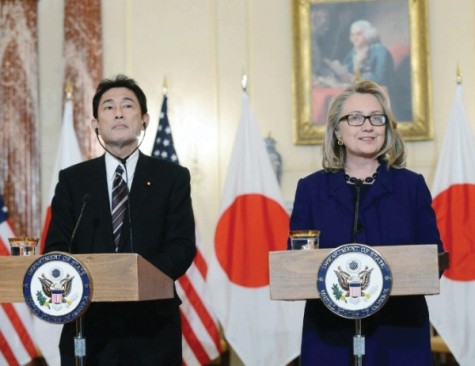All of the Internet should be created equally
Without net neutrality, Internet speed is slower and less content will be available to the public.
Supporters of net neutrality cheered as Obama endorsed their cause last Monday.
In his two minute video to the public, Obama urged the Federal Communications Commision (FCC) to create new rules that support net neutrality.
Net neutrality is the concept that everything on the Internet should be equally accessible. It is similar to the idea that small, local businesses should receive all the same opportunities as large multinational corporations.
In his statement, Obama credited the internet with being “one of the most significant democratizing influences the world has ever known.”
After acknowledging how important the internet is in a modern democracy, Obama endorses net neutrality but at the same time recognizes that the FCC is an “independent agency, and ultimately this decision is theirs alone.”
The FCC is deciding between two scenarios: making the internet completely open, or keeping some content on lockdown and give preference to the biggest, highest-paying websites. This decision is probably the most monumental in the short history of the Internet.
Net neutrality would allow for increased competition and the consumer’s freedom of choice, which are principles that the American economy was built on.
To wrap up his statement, Obama mentions the reason why the FCC was created in the first place: to promote competition, innovation and investment in our networks.
I have to agree with the president when he says that “In service to [the FCC’s] mission, there is no higher calling than protecting an open, accessible and free Internet.”
I have seen articles and debates about net neutrality popping up on my Facebook and Twitter feeds, but in the past I’ve simply skipped over them because the term meant nothing to me. A few days ago, I decided to look into the topic and discovered that the outcome of this important debate will affect my life and the lives of everyone I know.
Many of our favorite startup websites, like BuzzFeed, are important to growth of the Internet. Broadband providers, however, currently have the ability to crush any of these new startups that would interfere with the business they already support.
Net neutrality would preserve our freedom of choice on the Internet, a principle which would fully agree with the constitutional policies of freedom of the press and freedom of speech.
China is a nation that is famous for its internet censorship. Commonly called the “Great Firewall” of China, the incredible amount of government intervention is reminiscent of Mao’s communist policies. If internet had been around during Mao’s rule, he undoubtedly would have been against the idea of net neutrality and gone to great lengths to censor the internet.
After years of anti-communist policy, it would be completely counter-intuitive for the U.S. to oppose net neutrality, just as a communist government would.
In places where democracy is only beginning to develop, the internet is the most essential tool in creating a free government. Throughout the governmental coups and protests of the Arab Spring that started in 2011, access to internet and social media played a vital role in publicizing the chaos.
When a Tunisian street vendor Mohamed Bouazizi self-immolated himself, or set himself on fire, it made headlines in the New York Times because of internet communication.
This act of protest against a corrupt dictatorial regime sparked other protests in neighboring nations. These countries managed to topple their old governments, but are still struggling to operate functional democracies.
The U.S. is a role model for these countries and any others attempting to instate a government with basic human rights and fair elections. Our nation made history when it managed to free itself from tyrannical colonial rule and survive under a novel system. Despite our humble beginnings, we grew to be the most powerful nation on Earth.
Yes, we deserve to be proud of our history and reputation. But can we still brag about our success if we reject net neutrality?
As a role model for budding democracies, we need to incorporate free internet into the fabric of our nation. Net neutrality needs to be recognized as a right, almost as if it is the sixth freedom of the First amendment.
Just as the framers of the Constitution decided to create a free democracy, the FCC needs to decide to enforce net neutrality. All of the internet should be created equal.

Sarah Metzel is the current Editorals Editor of The A-Blast. She joined the staff sophomore year as a staff writer.
Metzel was accepted into the Young...








